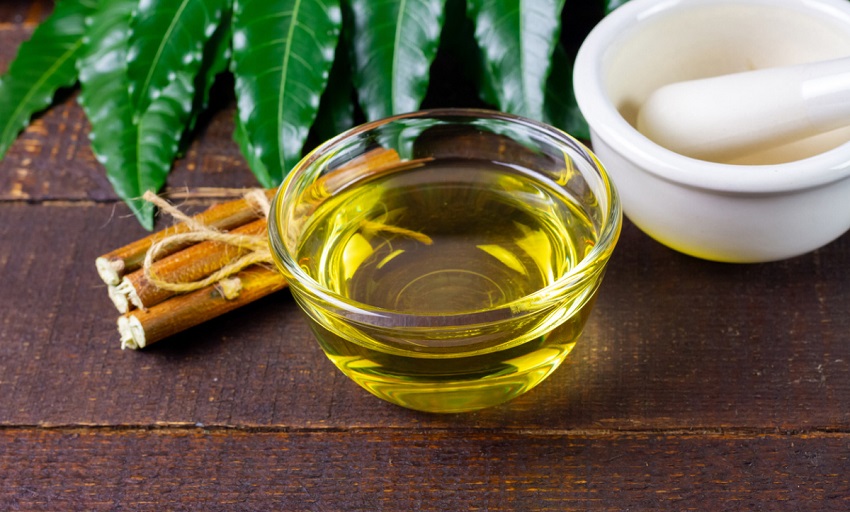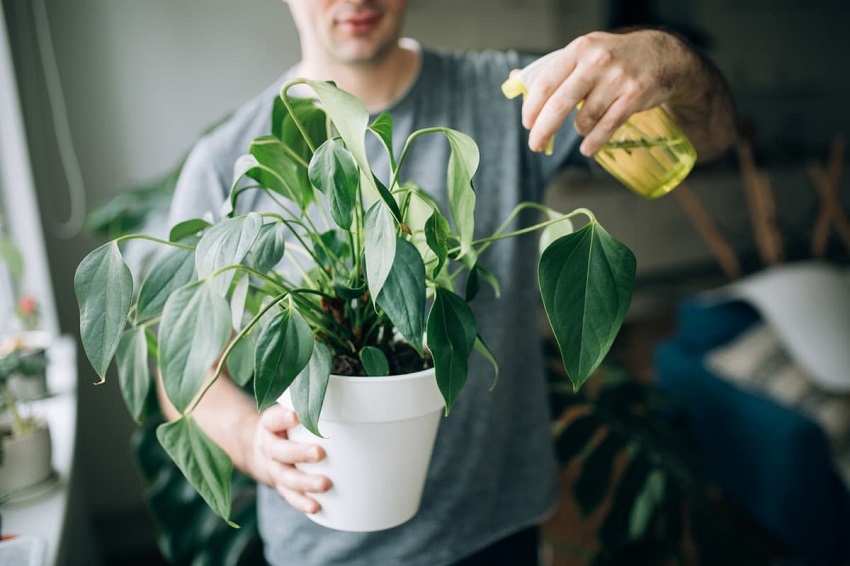Neem oil has gained popularity as a natural and effective solution for pest control in gardens and agricultural settings. Derived from the neem tree (Azadirachta indica), neem oil offers a range of benefits for plant health. However, before applying any substance to your plants, it’s important to understand the proper usage and potential considerations. In this article, we will explore whether it is safe and advisable to spray neem oil directly on leaves.
Understanding Neem Oil
Neem oil is a versatile plant-based product that has been used for centuries in traditional medicine. Its pesticidal effects make it a popular choice for gardeners who are dealing with problems with hydrangeas in pots. Derived from the seeds of the neem tree, which is native to the Indian subcontinent, neem oil contains several active compounds, including azadirachtin, which is the primary component responsible for its insecticidal and fungicidal properties.
The Benefits of Neem Oil
Neem oil offers numerous benefits when used appropriately. Here are some key advantages of incorporating neem oil into your plant care routine:
1. Natural Pest Control
Neem oil acts as a natural deterrent against a wide range of pests, including aphids, mealybugs, mites, and whiteflies. It disrupts the insects’ life cycle, affecting their feeding, growth, and reproduction. This makes neem oil an excellent choice for organic and eco-friendly gardening.
2. Fungal Disease Management
In addition to its insecticidal properties, neem oil also exhibits antifungal properties. It can help control fungal diseases such as powdery mildew, black spot, and rust. By inhibiting the growth of fungi, neem oil contributes to overall plant health and vitality.
3. Nutritional Benefits
Neem oil contains essential nutrients that can benefit plants. It provides trace elements like sulfur, magnesium, and calcium, which are vital for plant growth and development. Applying neem oil can enhance nutrient uptake and promote healthier foliage.
Proper Application of Neem Oil
To ensure the best results and minimize any potential negative effects, it’s crucial to follow the proper application guidelines for neem oil. Here are some essential considerations:
1. Dilution
Neem oil is highly concentrated and should never be applied to plants undiluted. Dilute the neem oil according to the instructions provided by the manufacturer. Typically, a 2% to 5% dilution is recommended for most garden applications.
2. Test on a Small Area
Before applying neem oil to the entire plant, it’s advisable to test it on a small, inconspicuous area. This allows you to observe any potential adverse reactions or sensitivities the plant may have to the oil.
3. Time of Application
The ideal time to apply neem oil is during the early morning or late afternoon. Avoid spraying neem oil on plants during the hottest part of the day to prevent leaf burn caused by the sun’s intense heat.
4. Coverage
Ensure thorough coverage of the leaves, stems, and any other affected parts of the plant. Neem oil works by suffocating insects and disrupting their life cycle, so it’s important to apply it evenly to all infested areas.
5. Repeat Applications
For effective pest control and disease management, it may be necessary to repeat the application of neem oil. Follow the instructions provided by the manufacturer regarding the frequency of applications and reapplication intervals.
Precautions and Considerations
While neem oil is generally safe for use on plants, it’s important to be aware of some precautions and considerations:
1. Sensitivity
Certain plant species may be more sensitive to neem oil than others. Before applying neem oil to a new plant, always check for any specific recommendations or warnings for that particular species.
2. Beneficial Insects
Neem oil is a broad-spectrum insecticide, meaning it can also affect beneficial insects such as bees and ladybugs. To protect these beneficial creatures, avoid spraying neem oil on plants while they are actively foraging.
3. Temperature and Humidity
Neem oil is most effective when applied under optimal temperature and humidity conditions. Avoid applying it during periods of extreme heat or high humidity, as this may reduce its efficacy.
4. Storage and Shelf Life
Proper storage of neem oil is essential to maintain its effectiveness. Store it in a cool, dark place away from direct sunlight. Check the expiration date on the product, as neem oil can lose its potency over time.
Conclusion
Neem oil can be a valuable tool in your plant care arsenal, providing natural pest control and helping manage fungal diseases. By following the proper application guidelines and considering the precautions, you can safely and effectively use neem oil to protect and nourish your plants.





